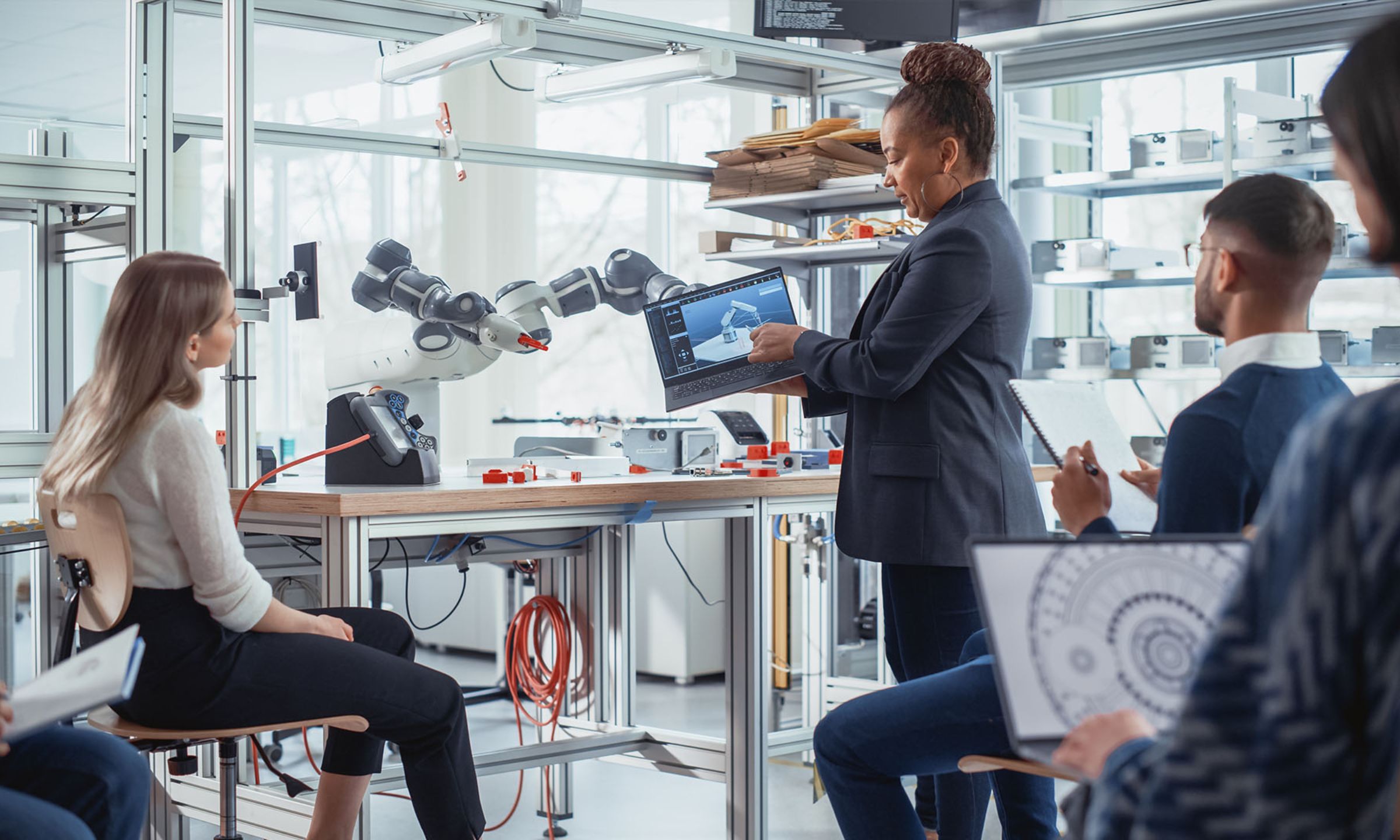Articles
Embracing industry 4.0: three guiding principles
Since the mid-2010s, we have entered the age of Industry 4.0. Also known as smart manufacturing, Industry 4.0 is driven by innovative manufacturing solutions enabled by disruptive technology trends in…

Since the mid-2010s, we have entered the age of Industry 4.0. Also known as smart manufacturing, Industry 4.0 is driven by innovative manufacturing solutions enabled by disruptive technology trends in data and connectivity. Despite the industry slowdown during the COVID-19 pandemic, manufacturers’ IT spend has bounced back since 2022, with a particular focus on operations digitalisation and supply chain management. Although smart manufacturing promises cost cutting and efficiency improvements in the future, the costly upfront investment often leads to buyer’s regret amongst manufacturers and requires a keen business case. In Elixirr’s 2024 Manufacturing Trends Report, it is emphasised that these technological improvements are cost-intensive for manufacturers and corporate teams need to begin plans for future implementations immediately.
Challenge of the Fourth Industrial Revolution: How to invest in technology that will maximise return for value?
In this digital industrial revolution, manufacturing executives are constantly bombarded with trending new technologies from industrial internet of things to artificial intelligence. Facing tension between the pressure to cut costs during economic downturns and delivering new products to meet changing customer demands, CTOs of leading manufacturers need to make strategic investment decisions on technology in manufacturing that will impact the whole organisation. This begs the question: what kind of smart manufacturing company can emerge? What technology should be invested in to achieve that?
Here are three principles we have seen from leading global manufacturers that will help answer these critical questions.
1. Let the customer guide your decision
Technology investment should directly translate to the value which can be brought to the customer. For example, these are technology that can be prioritised:
- Technology that can help understand the customer better
- Technology that allows an organisation to become more adaptive (rather than reactive) to changing customer demand
- Technology to innovate products solving key customer pain points
The appetite for initiatives with longer pay-back periods is low in manufacturing, as any incremental cost needs to be either absorbed (not an appealing prospect for many in todays environment) or passed to the client (who typically will say they were happy with the previous product at a lower cost). This means, the technology investments which are successful are the ones with the highest impact in a short-period.
2. Combining physical and digital manufacturing capabilities
Whether it’s an FMCG or a race car engine manufacturer, business depends on the physical production facility. To integrate physical and digital environments, digital tools need to be compatible with the characteristics and constraints of physical machinery. An example of the physical and digital disconnect is a facility that collects large amounts of data on its machinery via physical sensors but lacks the appropriate digital tools to transform physical data into insights. Microsoft and Mercedes-Benz partnered starting October 2022 to connect passenger car plants to the Microsoft Cloud, providing real-time feedback to solve supply chain bottlenecks and track sustainability metrics to manage energy use. In less than a year, Mercedes’ cloud investment has paid off as their data platform provided the foundation to rapidly deploy advanced technology including digital twins in three major production facilities across the globe. Mercedes’ “Digital First” production approach has enabled them to scale EV production in accordance with market demand.
3. Change how your organisation works and nurture existing talent to drive innovation
The World Economic Forum’s Future of Jobs Report states that due to the growing technology automation, half of all employees will need reskilling by 2025. The manufacturing industry is directly impacted due to the increased automation of repetitive manual tasks. New technology requires new ways of working. When manufacturers invest in technology, it can be disruptive to roles and responsibilities from assembly line workers up to executive leadership. Manufacturers need to update organisational design and invest in talent and skills (such as manufacturing machine learning programming) that match the new ways of working. However, this is particularly challenging due to the industrial brain-drain. In the 2024 Q2 Manufacturers’ Outlook Survey, 67% of manufacturers cited ‘inability to attract and retain employees’ as their top concern, over market conditions such as ‘unfavourable business climate’ and ‘weaker domestic economy’.
The difficulty in acquiring new talent can be offset by turning attention to upskilling existing workforce. The new Censuswide survey of over 4,000 of the UK’s workforce showed that 80% of workers in the manufacturing and utilities industries are interested in learning new work skills in 2022, more than the national average of 70%. Equipping long time workforce with digital skills not only alleviates the stress caused by the brain drain, but also helps preserve the institutional and technical knowledge that may otherwise be lost due to the aging workforce. Ford Motor Co, Liberty Steel and Heineken all launched their own apprentice program focused on upskilling employees as their industries increasingly move towards automation and connected technologies. Upskilling existing workforce is the pathway to resolve the manufacturing brain drain. As upskilled workers transform production sites with new tech and processes, they are creating a workplace attractive to the new generation of graduates, who are excited to work with the latest technology available.
Getting started…
To drive innovation in manufacturing, manufacturers must let their customer guide their strategic direction, invest in technology that can weave together physical and digital capabilities, and turn to their existing workforce to operate the smart manufacturing facility.
If you are ready to embrace industry 4.0 and tap into the growth opportunity technology can offer, reach out today!



